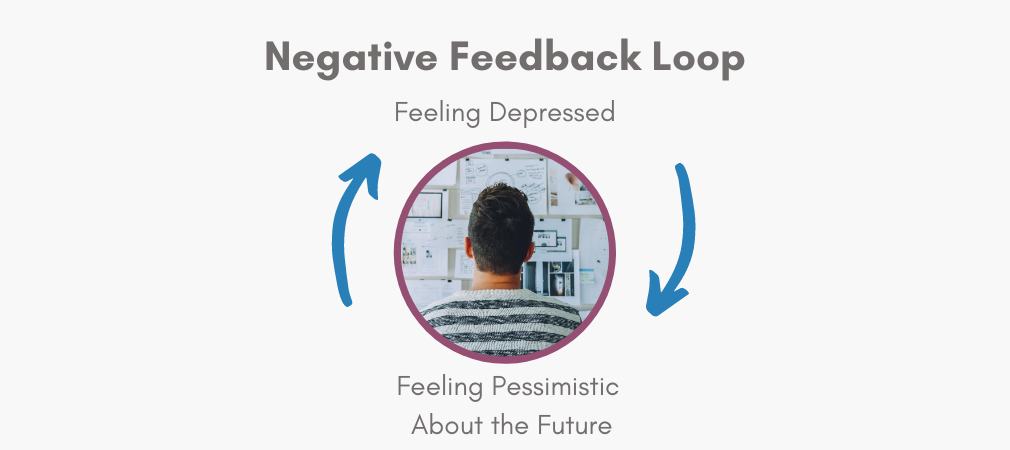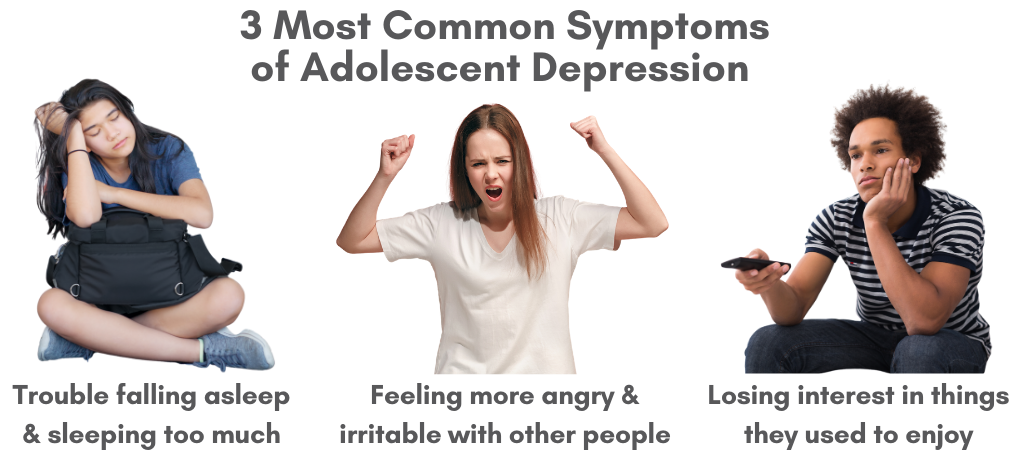3 Strategies to Improve Mood
As I mentioned previously, rates of depression continue to rise among adolescents, which has been particularly prevalent during the last decade.
During this time, adolescents reporting symptoms consistent with major depression have increased by 52%.
So clearly, it’s never been more important to learn strategies to manage mood.
Let’s take a closer look at three strategies that can help.
1. Friends serve as a protective factor
It's well known that most teenagers are highly sociable and enjoy being with their friends.
However, emotions are often contagious, and there can be concern about your teen developing depression if they happen to be exposed to another peer who is struggling with mood.
However, there appears to be support for friends as a protective factor against mood difficulties, provided their peer group is generally happy.
Hill et al. (2015) conducted a study examining how adolescents' mood is impacted by other teens in their social network.
They found that when adolescents are experiencing a dip in mood, engaging with friends who are in a healthy mood provides a protective effect against depression by 50%.
And if adolescents struggle with consistent feelings of depression, their recovery rate is doubled if they are involved in a happy group.

But again, please note the study involves a connection with a relatively happy group of friends.
If your teen is involved with a peer group where everyone struggles with mood, this could cause concern.
2. Use Socratic Questioning
What is Socratic questioning, you ask?
Simply put, Socratic questioning involves asking questions that help people to challenge the validity of their thoughts to explore if they are realistic.

Braun et al. (2015), in the journal Behaviour Research and Therapy, followed a group of study participants who engaged in 16 weeks of cognitive therapy (Socratic questioning is a technique used in cognitive therapy).
Results showed that the more the therapist used Socratic questioning, the more improvements the participants exhibited in managing depressive symptoms.
If you would like to use Socratic questioning occasionally when interacting with your teen, here is an example of sample questions you could ask if they described feeling like a failure after doing poorly on a test.
Questions you might ask include:
- Should everyone that does poorly on a test feel like a failure?
- If your best friend did poorly on a test, would you consider them a failure?
- Just because you did poorly on a test, does it mean you can’t do well in school?
- Is this grade that bad, and does it account for a significant percentage of your final grade?
Socratic questioning can help your teen think more realistically about their thoughts and feelings.
And hopefully, your teen will incorporate Socratic questioning into their daily life.
3. Speak Positively About the Future
Prospection (i.e., how we see the future) can be an essential factor influencing feelings of depression.
Roepke & Seligman (2015), in the British Journal of Clinical Psychology, examined if being pessimistic about the future can cause feelings of depression.
Typically, it’s been thought that feeling depressed causes people to think pessimistically about the future instead of vice versa.
So, essentially this is one of those “What came first, the chicken or the egg?” types of questions.

The researchers found that thinking pessimistically about the future is a significant factor contributing to depression.
They also found that there are three ways of thinking about the future that likely causes these feelings:
- Poor generation of possible futures
- Inadequate evaluation of potential future
- Negative beliefs about the future
And it was also noted that once there is an issue with depression, people tend to feel even more pessimistic about the future (because they are already feeling depressed), which creates a nasty feedback loop that makes feelings of depression even worse.

As parents, I encourage you to speak positively about the future and challenge any irrational beliefs your teen may have about their future.
Are there common signs of depression you notice in teens?
What strategies do you like to use to help your teen cope with feelings of depression?
Join the conversation on Facebook!





